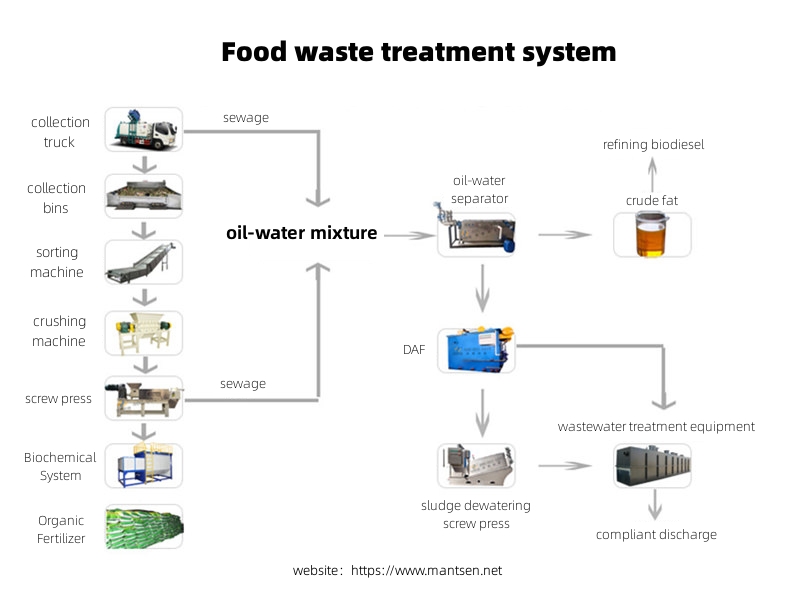
The utilization of kitchen waste dewatering press machines has gained significant attention in recent years as a sustainable solution for managing organic waste generated in households and commercial kitchens. This article aims to explore the effectiveness of these machines in reducing the volume of kitchen waste and producing dewatered organic matter for various applications.
Reduction in Volume:
One of the primary benefits of using a kitchen waste dewatering press machine is the substantial reduction in the volume of organic waste. By efficiently extracting moisture from kitchen waste, these machines can significantly decrease the overall volume, making it easier and more cost-effective to handle and dispose of the waste.
Enhanced Waste Management:
The dewatering process not only reduces the volume but also contributes to better waste management. The dewatered organic matter is less prone to decomposition and unpleasant odors, minimizing the environmental impact during storage and transportation.
Resourceful Byproduct:
The residual material produced by the dewatering press machine is a valuable byproduct. This nutrient-rich organic matter can be utilized as compost or fertilizer, promoting sustainable agricultural practices and closing the loop in the waste management cycle. The compost generated from dewatered kitchen waste is an eco-friendly alternative to chemical fertilizers, contributing to soil health and fertility.
Operational Efficiency:
Kitchen waste dewatering press machines are designed for user-friendly operation and low maintenance. Their automated systems and efficient mechanisms allow for easy integration into existing waste management processes. The reduced need for frequent waste pickups and disposal translates to cost savings for both households and commercial establishments.
Environmental Impact:
By reducing the volume of organic waste and producing a valuable compost byproduct, the use of kitchen waste dewatering press machines aligns with environmental sustainability goals. It helps decrease the carbon footprint associated with waste transportation and disposal while promoting the responsible management of organic resources.
Conclusion:
In conclusion, the utilization of kitchen waste dewatering press machines demonstrates a positive impact on waste management practices. The reduction in waste volume, production of nutrient-rich compost, operational efficiency, and environmental benefits collectively make these machines an effective solution for handling kitchen waste. As sustainability becomes increasingly important, adopting such technologies contributes to a greener and more responsible approach to waste management.




If your company wants to establish a business relationship with us, please briefly describe the cooperation intention and send an email to:chuantaiscrewpress@gmail.com























































































![[list:title]](/static/upload/image/20240528/1716877114510915.jpg)